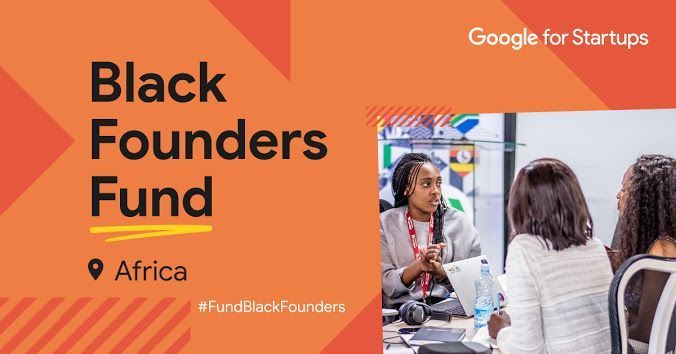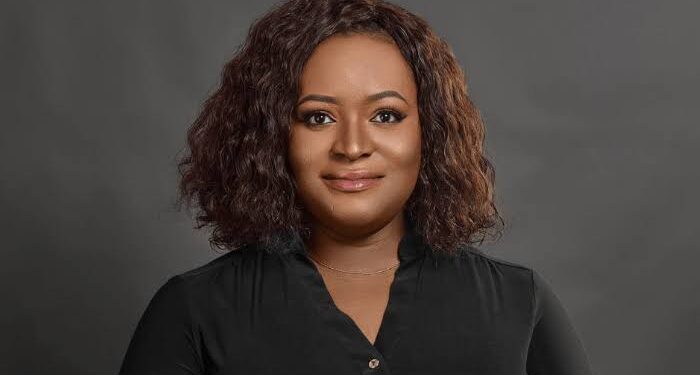20 out of the 60 startups selected to receive funding from the 2022 Google Black Founders Fund (BBF) are (co-)founded by women, 11 of which are based in Nigeria.
Why it matters:
Data from the world bank has revealed that although there are fewer all-female teams in Africa, they are disproportionately underfunded compared with mixed or all-male teams.
Between January 2013 and May 2021, Briter Bridges reported that a total of 1,112 start-ups operating across Africa raised a combined amount of $1.7 billion in early-stage financing. However, investments into all-female teams made up only 3% of the $1.7 billion, while 76% of investments went to all-male founding teams.
The Funding Challenge:
To explain the divergent funding paths for startups in Africa, the World Bank conducted a survey of 172 companies. The results of the survey showed that companies founded by women did not seek equity investment as much as their male counterparts. This was either because they preferred to reinvest profits they had no need for, or for some other reason.
Whereas, the companies that did raise equity funds obtained them from friends, family, and other individuals who made up about 60% of the investors; compared to 50% for male-founded companies and 44% for companies with mixed teams, which had a more diverse portfolio of investors.
While the women-funding-women strategy seems to be working in recent times, data from Organization Science opine that this will not only place an undue burden on female investors, but may also undermine the long-term success of female entrepreneurs. This study also shows that companies with female founders who received funding from female rather than male venture capitalists are twice as less likely to raise additional funds.
Furthermore, responses from female-founded companies in a survey of 172 startups revealed that The Black Founders Fund, is a part of Google’s racial equity commitment and goal to improve leadership representation of underrepresented groups.
Google Black Founders Fund:
Since its inception in 2021, $20M has been deployed to fund black founders across the US, Europe, Africa, and Brazil. On the African continent, 50 startups from 9 countries have benefitted from a total cash prize of $3 million and have gone on to raise over $87 million in follow-on funding and created 518 job opportunities.
This year, a total of $4 million will be distributed to selected startups from 10 African countries (Nigeria, Kenya, Rwanda, South Africa, Uganda, Ghana, Cameroon, Ethiopia, Botswana and Senegal), who will each receive $100,000 in non-dilutive cash awards, paired with up to $200,000 in Google Cloud credits.

The startups will also receive ongoing hands-on business and technical mentorship from Google’s network of mentors and facilitators, learning the best practices on a range of topics from artificial intelligence (AI) to organizational culture, people management and growth strategies and more.
Female inclusion in the Initiative:
This year, Nigerian female-led startups took the lead with 50% of the total number of startups in the female category and nearly half (11 out of 23) in the selected teams from Nigeria.
2021 saw 16 female-led startups rise to become beneficiaries of the initiative, where Nigeria produced 8 beneficiaries, 2 from Kenya, 2 from Ghana (3), 1 from South Africa, Zambia, Senegal and Cameroon each.
This shows that more women are turning up to receive funds and are receiving due acknowledgements as well. Google’s Black Founders Fund Africa has not only provided financial backup for startups and entrepreneurs, it has also provided a level playing ground for companies led by both genders to compete for a chance to be heard and supported. Hence this can be expected to build character, hard work and transparency.
“We’re working to improve Black+ representation at senior levels and committing to a goal to improve leadership representation of underrepresented groups by 30% by 2025. We’ll do more to address representation challenges and focus on hiring, retention, and promotion at all levels,” — Sundar Pichai, CEO, Google.
This year’s female startup recipients are:
1. Bookings Africa (Nigeria):
Founded by Fade Ogunro, Bookings Africa enables Africa’s gig workforce to digitize and monetize their skills by connecting clients efficiently and transparently to skilled talents across Africa.
2. Brastorne (Botswana):
Co-founded by Naledi Magowe, Brastorne connects the unconnected in Africa, enabling rural villagers to have access to the digital world without smartphones or data.
3. BuuPass (Kenya):
Co-founded by Sonia Kabra, BuuPass is Kenya’s first marketplace for bus, shuttle, and train bookings. The company is building digital rails for Africa’s intercity transport industry.
4. Clafiya (Nigeria):
Co-founded by Jennie Nwokoye and Itoro Inoyo, Clafiya connects individuals, families, and businesses to health practitioners – enabling access to convenient, quality, and affordable, on-demand primary care from their mobile phones.
5. ClinicPesa (Uganda):
Co-founded by Anyango Sharon, ClinicPesa provides an easy-to-use platform where low-income users can set aside funds as low as $0.30 which is daily dedicated towards healthcare and users can get access to healthcare loans.
6. COVA (Cameroon):
Founded by Virginie Pouna, COVA is a digital insurance platform that enables partner businesses to easily and seamlessly deliver insurance products to their users.
7. CreditAIs (South Africa):
Co-founded by Thulisile Volwana, CreditAIs provides credit scoring tools for micro-businesses and individuals that do not fit the existing traditional credit scoring models.
8. Easy Matatu (Uganda):
Co-founded by Precious Turinawe, Easy Matatu provides a mobile platform that allows commuters to book and pay for scheduled rides on vetted and inspected mini-buses.
9. Gamr (Nigeria):
Founded by Eniola Edun, Gamr is an eSports tournament aggregation platform, helping African gamers discover tournaments they can play and get rewards from.
10. Healthtracka (Nigeria):
Founded by Ifeoluwa Dare-Johnson, Healthtracka is a platform that allows users access on-demand healthcare services in the comfort of their homes.
11. HerVest (Nigeria):
Founded by Solape Akinpelu, HerVest offers a highly secured, women-focused financial platform that enables women to participate in key financial services, with a focus on female farmers.
12. KUDIGO (Ghana):
Co-founded by Yaa Prince-Boateng, KUDIGO offers an omni-channel digital commerce platform to empower micro and small businesses in Africa.
13. LifeBank (Nigeria):
Founded by Temie Giwa-Tubosun, LifeBank leverages technology to provide value in multiple segments (production, marketplace and distribution) of the healthcare supply chain such as blood, oxygen and medical supplies.
14. OneHealth (Nigeria):
Founded by Nkiru Amadi-Emina, OneHealth is an online pharmacy & healthcare platform that provides access to medicines, healthcare information, and solutions (Laboratory services & Doctors) to the last mile patient.
15. Pivo (Nigeria):
Founded by Adeola Alli, Pivo is a credit focused digital bank for trade, supporting businesses across Africa.
16. QShop (Nigeria):
Founded by Tarebi Alebiosu, QShop is an easy to use DIY e-commerce platform designed to help small and medium-sized businesses scale and sell better online.
17. TERAWORK (Nigeria):
Co-founded by Titi Ogunsina-Taiwo, TERAWORK is an online freelance marketplace focused on matching freelancers to service buyers.
18. Topset Education (Nigeria):
Founded by Yvonne Williams, Topset Education is an edtech platform that makes quality education accessible to Africans everywhere.
19. TopUp Mama (Kenya):
Co-founded by Emilie Blauwhooff, TopUp Mama enables restaurants in Africa to purchase food supplies, access financial services and manage their business.
20. Zuri Health (Kenya):
Co-founded by Daisy Isiaho, Zuri Health provides affordable and accessible healthcare services to patients across Sub-Saharan Africa via mobile app, website, Whatsapp chatbot and SMS service.

































